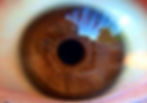>> A Probing Welcome
>> Monkeypox Spreads Unnoticed
>> Another condition linked to poor sleep
The Med & Mic™ 11.03.22
MED NEWS blog post from Dr. Maria ON Speaking, LLC
Insightful, supportive coaching to help you meet your speaking goals

Airports as COVID Sentinels
Four U.S. airports are testing incoming passengers for COVID. The process gives the CDC information about variants entering the country and which ones might gain ground. At the end of August, the CDC detected the new BQ.1 variant which was on the verge of spreading rapidly in Europe. As of October, the variant accounted for 17% of samples among travelers, suggesting this could be the one to watch this winter. The specimens are pooled and tested. The results are not for individual information, so passengers only share their flight, its origin, and where they had traveled. About 12,000 to 15,000 people agree to be swabbed each week. JFK, Newark, San Francisco International, and Atlanta Hartsfield are the participating airports, with Dulles joining in November. (Source: TIME, A. Park, 11.3.22)

Monkeypox Spreads Before Symptoms
British researchers have determined that monkeypox can spread before symptoms appear, the first evidence the virus can be transmitted this way. A team from the UK Health Security Agency reviewed surveillance and contact tracing data for 2,746 people who tested positive between May and August. Using statistical models, they found the period of time between two contacts showing symptoms was shorter than the period of time between exposure and the onset of symptoms. This shows there was “considerable” transmission before any visible illness. Up to 53% of transmission occurs before symptoms start. Previously, it was thought monkeypox spread only through contact with symptomatic people. (Source: Reuters, J. Rigby, 11.3.22)

Poor Sleep Linked with Glaucoma
People with unhealthy sleep patterns have an increased risk of glaucoma. The condition of high internal pressure in the eye can lead to vision loss if it is not diagnosed and treated early. Researchers reviewed data from more than 400,000 people in the UK Biobank study. They correlated sleep habits and glaucoma diagnoses among people age 40 to 69. Snoring, daytime sleepiness, and insomnia were all associated with the risk of glaucoma. The study relied on self-reporting. It’s possible glaucoma could affect sleep, as opposed to sleep problems precipitating glaucoma. The researchers call for sleep interventions and screening people with chronic sleep problems for glaucoma. (Source: The Guardian, A. Gregory, 11.1.22)
The CE experience for this Blog Post / Article is powered by CMEfy - click here to reflect and earn credits {$1}: https://earnc.me/u54NuD
Like | Share | Follow | Subscribe!
As a public speaker, media guest, or podcast guest, what are you thankful for? What are you thankful for as a doctor? What are you thankful for in general? Share your thoughts to win a gift card and be featured in my next newsletter. https://forms.gle/qi69hWwwFm4Ypf7D6
Remember: this post is for informational purposes only and may not be the best fit for you and your personal situation. It shall not be construed as medical advice. The information and education provided here is not intended or implied to supplement or replace professional medical treatment, advice, and/or diagnosis, or the advice of your own physician. Always check with your own physician or medical professional before trying or implementing any information read here.